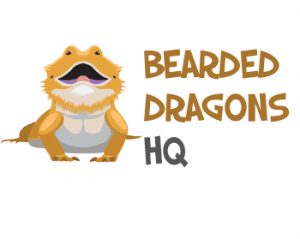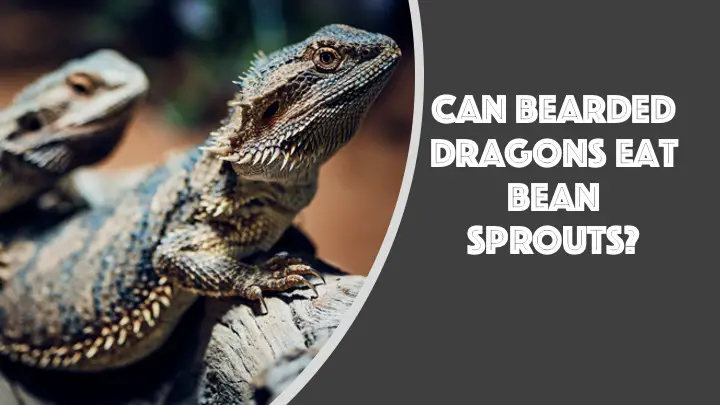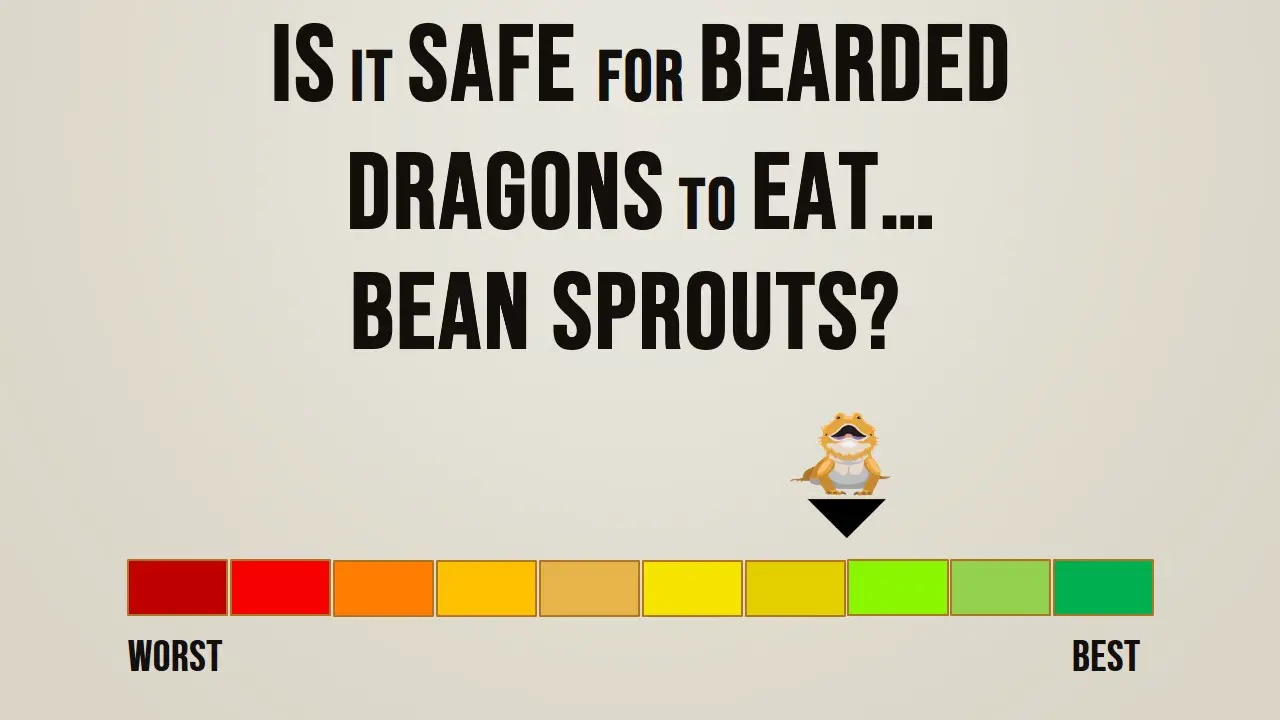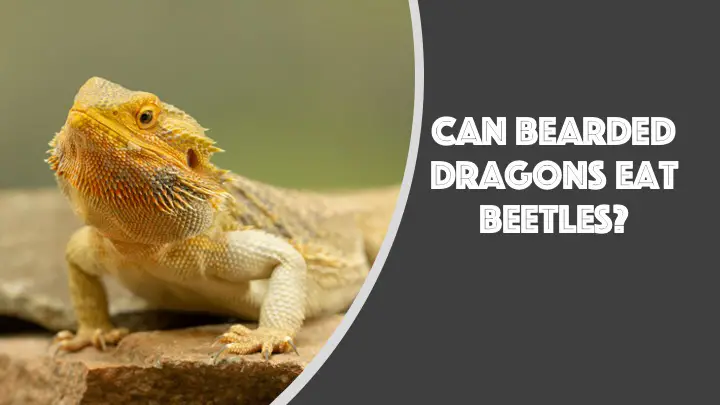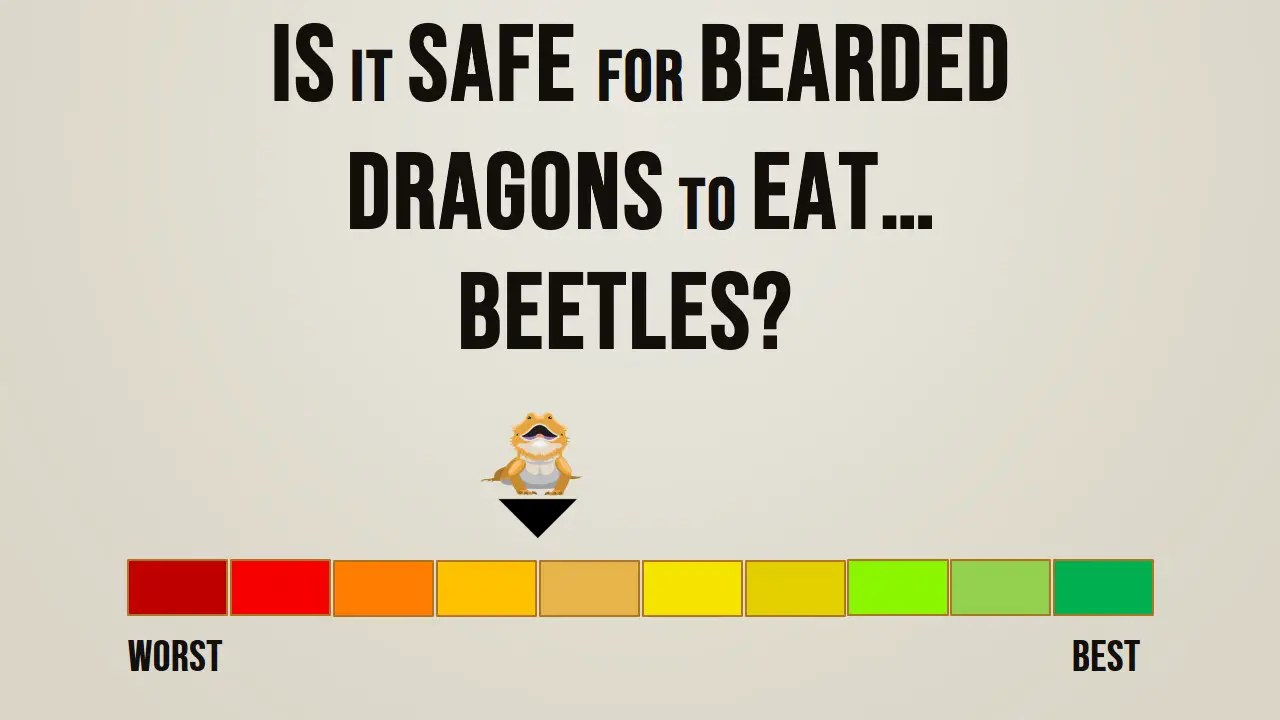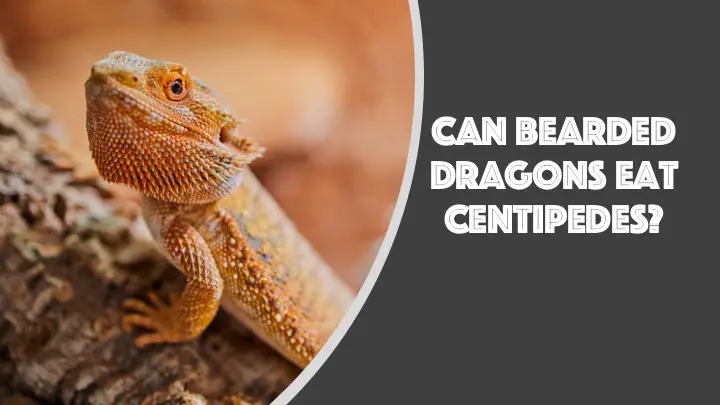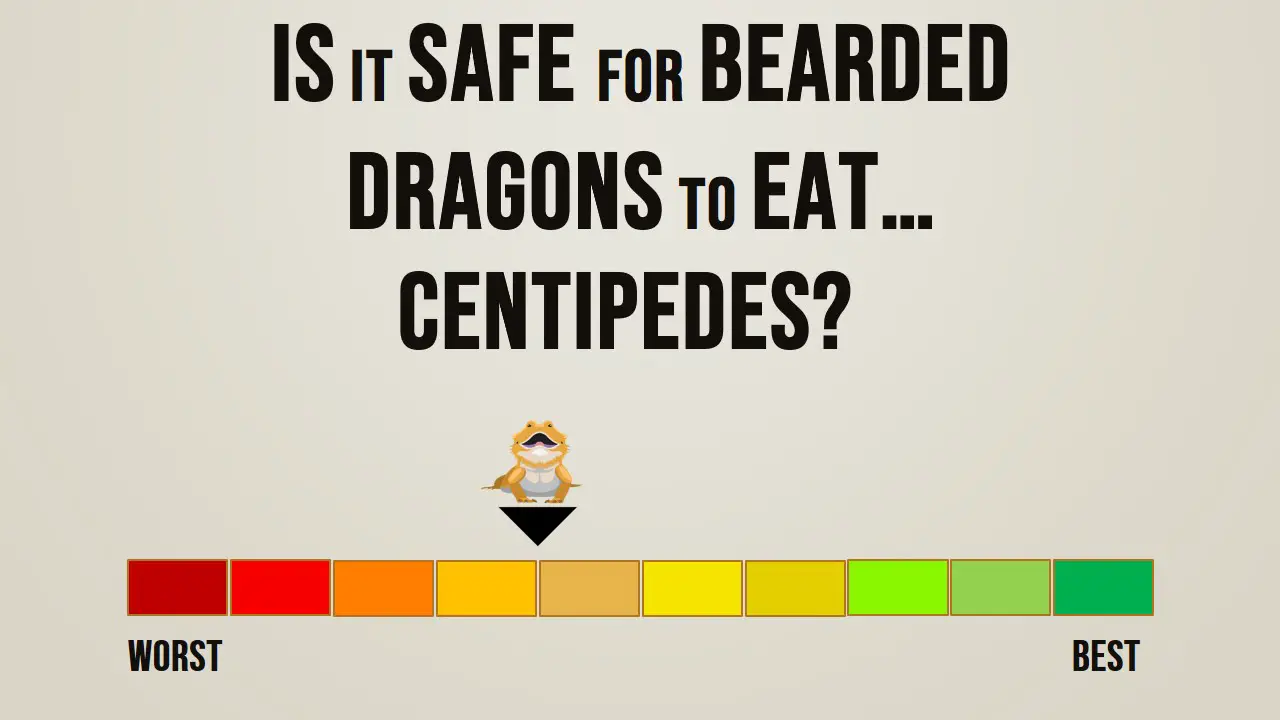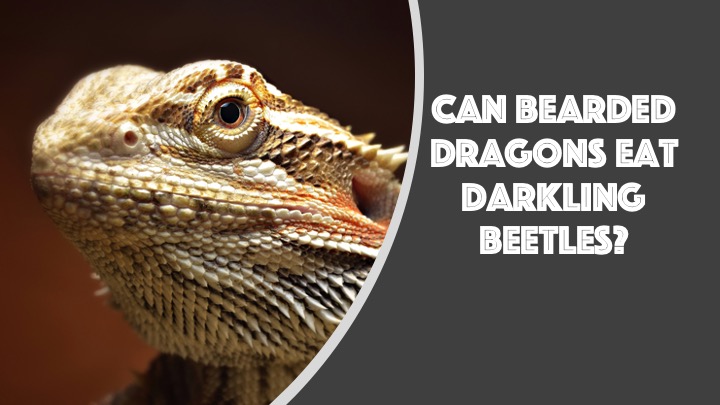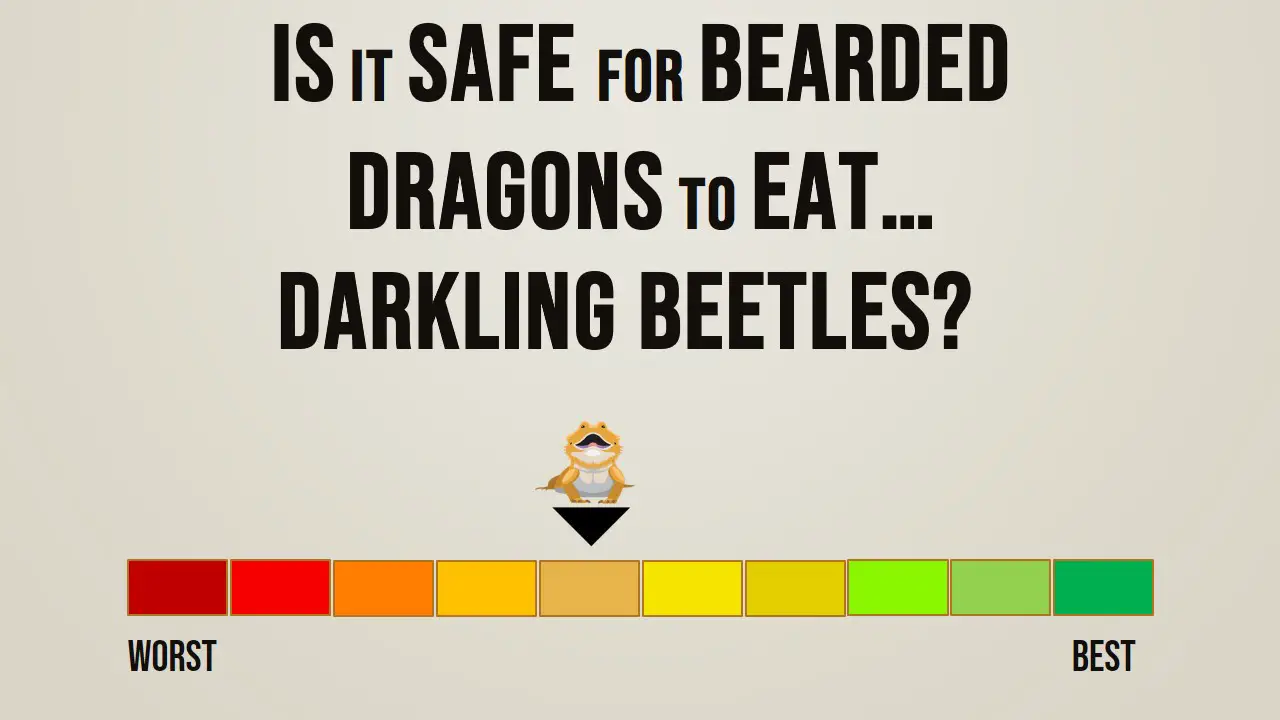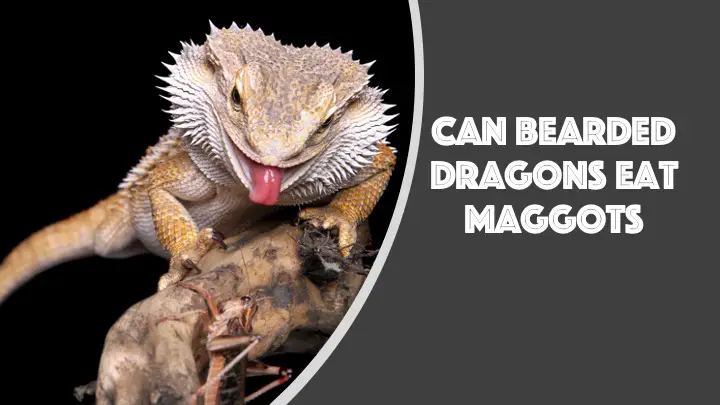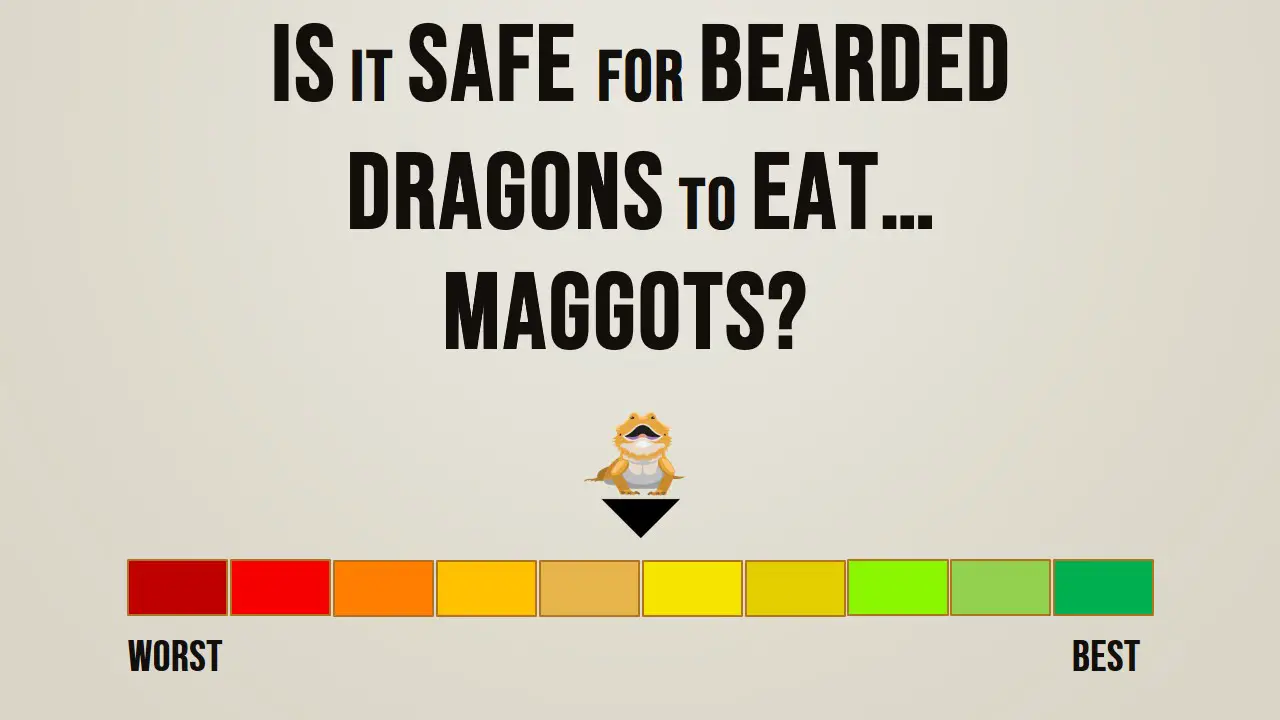The short answer is no, but there’s a little more to it than that. Ladybugs and other small bugs and bugs in the garden aren’t healthy foods for bearded dragons. It can be fun and beneficial to your lizard if you share some treats from time to time, but insects should not make up a large part of their diets. We’ll tell you why below! Check out the insect list
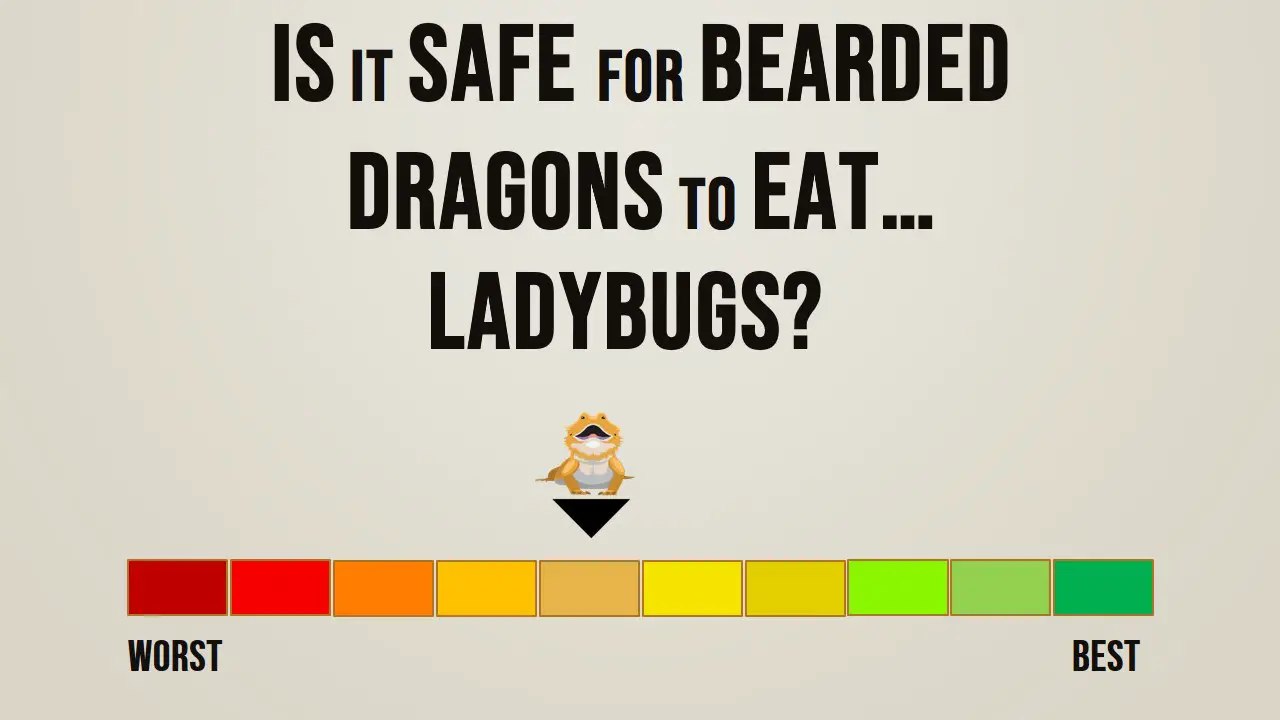
How Much Do Bearded Dragons Eat?
A bearded dragon diet includes as much as 85% vegetables, such as collard greens, mustard greens, turnip greens, dandelion greens, bok choy. 5% should be fruit, like apples and cantaloupe. The other 10% should be protein-based foods like mealworms or crickets.
Insects Bearded Dragons Can Eat
- Can Bearded Dragons Eat Grasshoppers
- Can Bearded Dragons Eat Hornworms
- Can Bearded Dragons Eat June Bugs
What’s Wrong with Ladybugs and Other Insects?
Ladybugs and other insects aren’t healthy for bearded dragons because they:
- May contain pesticides or herbicides that are harmful to your pet.
- Can be difficult to digest, especially for young bearded dragons.
- Can irritate the stomach if eaten in large quantities. They may cause discomfort as well as inflammation of the lining of the digestive track! That can lead to something serious like impaction, which is very dangerous. Young, old, and sick lizards are most at risk; but any beardie can suffer an impacted gut from eating too many bugs or the wrong type of bug.
- Bearded dragons have very unique and specialized diets. They can’t process large amounts of cellulose, which is what makes up a bug’s exoskeleton and the cell walls in plants. The lizard’s stomach digests the meat or plant matter inside but it requires extra energy to digest the hard outer shell or cell wall. You should never feed these to your pet:
- Crickets larger than the space between their eyes.
- Ladybugs, fireflies, beetles (including roaches).
- Moths (which often eat wool and other animal fabrics, like clothes!) These insects are not only bad for your dragon; they’re potential choking hazards! The exoskeleton may stick in your pet’s throat and kill it if it doesn’t pass through slowly.
Lastly, ladybugs offer no nutritional value to bearded dragons. While eating a few ladybugs will not likely kill your beardie, he or she might fall ill and frankly, there’s no advantage. They do more harm than good.
